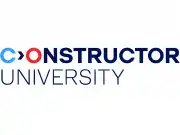Educational programs in engineering
- Advantages of studying Engineering
- Formats and levels of programs in Engineering
- Top universities in Engineering
- Additionally recommended universities in Engineering
- How to apply for Engineering programs
- Language of study and preparation for Engineering programs
- Tuition fee for Engineering programs
- Scholarships and grants for Engineering programs
- Career prospects after studying Engineering
- Is it worth getting an education in Engineering
- Frequently asked questions

Bachelor of Science - Industrial Engineering & Management
Constructor University - Bremen, GermanyOne of the broadest and most adaptable engineering specialties is industrial engineering. It has been argued that while engineers create things, industrial engineers improve them. The construction and administration of systems that effectively integrate people, resources, and energy are topics covered…

Bachelor of Science - Electrical and Computer Engineering
Constructor University - Bremen, GermanyMicroelectronics advancements have triggered a digital revolution in which computers take center stage. While we still think of computers as desktop or laptop computers, digital computing and digital signal processing have become critical for many of the products we use every day, including cars,…

Bachelor of Science - Robotics and Intelligent Systems
Constructor University - Bremen, GermanyThis program covers engineering methods and technologies for creating artificial mobile systems, such as robots, that are independent of constant human supervision, allowing mobile systems to perform autonomous intelligent operations. Robotics and automation are the primary application areas, but…

Master of Science - Supply Chain Management
Constructor University - Bremen, GermanyStudents learn data analytics, data engineering, and management skills to manage supply chains. Students will learn how to build and sustain high-performance global logistics systems. The program focuses on data analytics, data engineering, and modern leadership and management. This includes analyzing…

Bachelor of Technology (Hons) - Construction Management
George Brown College of Applied Arts and TechnologyThe Honours Bachelor of Technology (Construction Management) program integrates theory, research, fieldwork, and practical teaching. The curriculum blends construction engineering and technology with business and management concepts as applied to construction.
Students learn to handle building…

Certificate - Carpentry and Renovation Techniques
Niagara College InternationalAre you interested in learning the skills required to build or improve structures?
You have the practical skills required to play a key role in the rapidly growing construction industry as a Carpentry and Renovation Techniques graduate.
Highlights
- Learn…

Certificate - Electrical Techniques
Niagara College InternationalDo you like doing manual labor and want to contribute to Ontario's need for qualified electrical workers?
As a graduate in Electrical Techniques, you have the foundational electrical knowledge and abilities required for entry into the workforce as well as a solid base for further electrical…

Certificate - Mechanical Techniques (General Machinist)
Niagara College InternationalDo you want to be a skilled craftsperson with a career in the high-demand machining field?
As a General Machinist, you will be able to set up and operate a wide range of precision metal cutting and grinding machines that are used in this expanding sector of specialty machining industries.
Highlights
- The…

Certificate - Motive Power Techniques (Automotive)
Niagara College InternationalThis program is an excellent entry point into many areas of the automotive industry.
Graduates will be able to enter many entry-level positions in the automotive industry, including being equipped with solid foundational skills that will help them find an apprenticeship as an Automotive…

Certificate - Pre-Technology
Niagara College InternationalDo you see a future in the technology trades but need some assistance narrowing your options?
You have a strong foundation in math, physics, and computer applications as a Pre-Technology graduate and are prepared to continue your education in a technology or technician program.
Highlights
- Before…
Advantages of studying Engineering
Engineering has remained one of the most in-demand fields of education and career for decades. The reason is that engineering training forms specialists capable of developing technologies, solving global tasks, and implementing innovations in very different spheres.
Key advantages of studying Engineering:
- International demand. Professional engineers are required in energy, construction, IT, mechanical engineering, aerospace industry, and medicine.
- Career flexibility. After receiving a diploma, a graduate can continue education, engage in science, move to consulting or managerial positions.
- High income. The average salary of specialists in technical fields is higher than that of representatives of humanitarian professions.
- Participation in innovations. Engineers create new sources of energy, automated systems, medical equipment, sustainable infrastructure projects.
- Global prospects. Graduates of foreign universities can build a career both in the chosen country and at the international level.
Formats and levels of programs in Engineering
Engineering education is available at different stages and in different formats.
| Level | Duration | Main content | Suitable for |
|---|---|---|---|
| Bachelor's | 3–4 years | Basic engineering disciplines, mathematics, physics, laboratory work | Applicants after school |
| Master's | 1–2 years | Advanced research, project work, practice | Bachelor’s graduates |
| Doctorate (PhD) | 3–5 years | Scientific research, publications, teaching | Future researchers and lecturers |
| Preparatory programs | 6–12 months | English language, academic mathematics and physics | Students who need to improve knowledge |
| Certificate and summer courses | from 1 month | Narrow fields: robotics, automation, AI | Active specialists for qualification improvement |
Top universities in Engineering
| University name | Field of study | Tuition fee for international students (per year) | Comment |
|---|---|---|---|
| Massachusetts Institute of Technology (USA) | Engineering (various directions) | 55 000–60 000 USD | Leader of world rankings, strongest scientific base and laboratories |
| Stanford University (USA) | Engineering (various directions) | 50 000–55 000 USD | In top-3 universities of the world in Engineering, close cooperation with Silicon Valley |
| University of Cambridge (United Kingdom) | Engineering (various directions) | 45 000–46 000 GBP | One of the oldest and most prestigious universities in Europe, high academic standards |
| Technical University of Munich (Germany) | Mechanical engineering, electrical engineering, civil engineering | 3 000–6 000 EUR (some programs are free) | Leader in Germany, actively cooperates with BMW, Siemens, Airbus |
| Nanyang Technological University (Singapore) | Engineering (various directions) | 30 000–35 000 SGD | Top-10 in Asia, known for practical orientation of education |
Additionally recommended universities in Engineering
| University name | Field of study | Tuition fee for international students (per year) | Comment |
|---|---|---|---|
| International University of Applied Sciences IU (Germany) | Engineering | 5 500 EUR | The university offers an interdisciplinary approach, strong base in mathematics and technologies. |
| Wittenborg University of Applied Sciences (Netherlands) | Engineering (various directions) | 18 300 EUR | 5 stars in QS Stars rating in employment and management indicators. |
| Oxford Brookes University (United Kingdom) | Engineering (various directions) | 16 000–17 000 GBP | Included in 25% of the best universities in the world according to QS World University Rankings |
| London South Bank University (United Kingdom) | Product design / Engineering | 15 500 GBP | 59th place in the United Kingdom in Guardian University Guide 2025. |
| Abertay University (United Kingdom) | Civil engineering, mechanical engineering | 15 000 GBP | 103rd place in The Complete University Guide Rankings 2024. Offers practice-oriented education with emphasis on innovation and cooperation with industry. |
How to apply for Engineering programs
Application stages:
- Document preparation. A passport valid for the entire period of study, certificate or diploma, academic transcript, translation into the language of the university.
- Language test. IELTS, TOEFL or Duolingo (level from B2 and above, usually 6.5–7.0).
- Additional exams. In the USA – SAT/ACT for Bachelor's, GRE for Master's; in other countries – internal tests or competition of certificates.
- Registration and application submission. Universities open admission 6–12 months before the beginning of the academic year.
- Interview. Some programs require an online interview.
- Receiving the decision and applying for visa. After receiving the invitation, a student visa is issued.
Language of study and preparation for Engineering programs
Most programs are taught in English. In Germany, Austria, France, and Spain English-language courses are available, but knowledge of the local language increases chances for admission and integration.
Preparatory programs (Foundation, Pre-Engineering):
- Provide a base in mathematics and physics.
- Help improve the language.
- Last from 6 to 12 months.
- Often guarantee admission to a partner university upon successful exam completion.
Tuition fee for Engineering programs
Cost depending on the country:
- USA, United Kingdom: 40 000–60 000 USD/GBP per year.
- Canada, Australia: 30 000–45 000 CAD/AUD.
- Europe (Germany, Austria, Czech Republic): 1 500–10 000 EUR.
- Turkey and Asia: 5 000–15 000 USD.
Additional expenses:
- Accommodation: 500–1 000 EUR/USD per month.
- Food: 200–400 EUR/USD.
- Study materials: 500–1 000 per year.
- Transport: 30–100 per month.
- Medical insurance: 500–1 500 per year.
Scholarships and grants for Engineering programs
For international students there are several real opportunities to reduce tuition fee.
Types of support:
- Academic scholarships – for high grades and achievements.
- Financial aid – for students from families with limited capabilities.
- Motivational grants – for leadership qualities and participation in projects.
- University grants – discounts on tuition up to 10–50%.
- Assistant and research positions – part-time work in laboratories.
Examples of available support programs for Engineering students:
- Merit-based Scholarships – provided by many universities of the USA, Canada, and Europe to international students with excellent grades in profile subjects.
- Need-based Aid – financial assistance for students who prove limited financial capabilities (often available in universities of Canada and the United Kingdom).
- Graduate Research Assistantship – research positions in Master's and Doctorate programs, allowing international Engineering students to receive salary and reduce tuition fee.
- Engineering Faculty Excellence Award – scholarships at technical faculties of universities in Europe and Asia, awarded for academic success and projects in Engineering.
- STEM International Scholarship – grants for students from CIS and India, who enroll in Engineering programs in universities of Australia and Singapore.
These forms of support are real and applicable specifically for Engineering, which makes studying abroad more affordable.
Career prospects after studying Engineering
Graduates of engineering faculties are in demand in many spheres.
- Popular specialties: robotics, electronics, mechanical engineering, bioengineering, software engineering, construction.
- Employer companies: Siemens, Bosch, Google, Microsoft, Toyota, Samsung, Huawei, Airbus, IBM.
- Internships. Many universities have partner programs with corporations, which simplifies employment after graduation.
Is it worth getting an education in Engineering
Yes, studying Engineering is worth the effort. It opens doors to high-tech industries, gives a stable income and the possibility to work in international companies. In Europe, the tuition fee may be significantly lower than in the USA and the United Kingdom with similar quality of education. Asia is rapidly gaining authority due to the combination of price and quality.
Frequently asked questions
1. How to choose suitable Engineering programs abroad?
When choosing, it is important to consider the university rating, tuition fee, language of study, and the availability of specialization that interests you. Many Engineering programs include internships, which increase chances of successful employment.
2. Which documents are needed for admission to Engineering programs?
It is necessary to prepare a passport, certificate or diploma, academic transcript, language test results, and if necessary certificates of entrance exams. Universities require a full package of documents for enrollment in Engineering programs.
3. How much do Engineering programs cost for international students?
The cost depends on the country and level of education: from 1 500–2 000 euros in public universities of Europe to 60 000 dollars in universities of the USA. Additionally, it is worth considering expenses for accommodation, food, and insurance.
4. Is it possible to receive a scholarship for Engineering programs?
Yes, many universities provide academic scholarships, grants, or financial aid. Engineering programs are often financed also by corporations interested in training young specialists.
5. What are the prospects for graduates of Engineering programs?
Students who complete their studies find work in leading world companies in technology, construction, energy, and IT spheres. Engineering programs give a competitive advantage in the labor market and open opportunities for an international career.